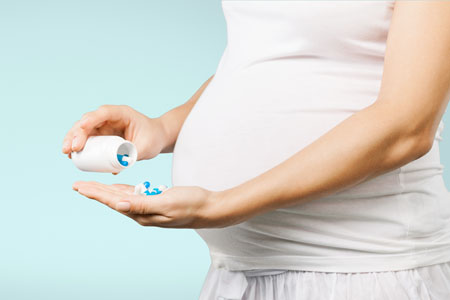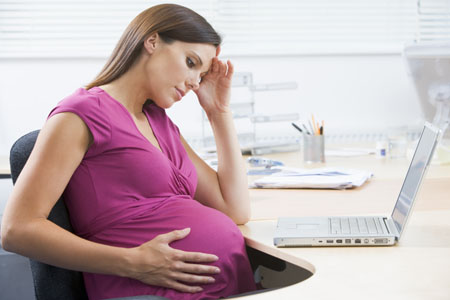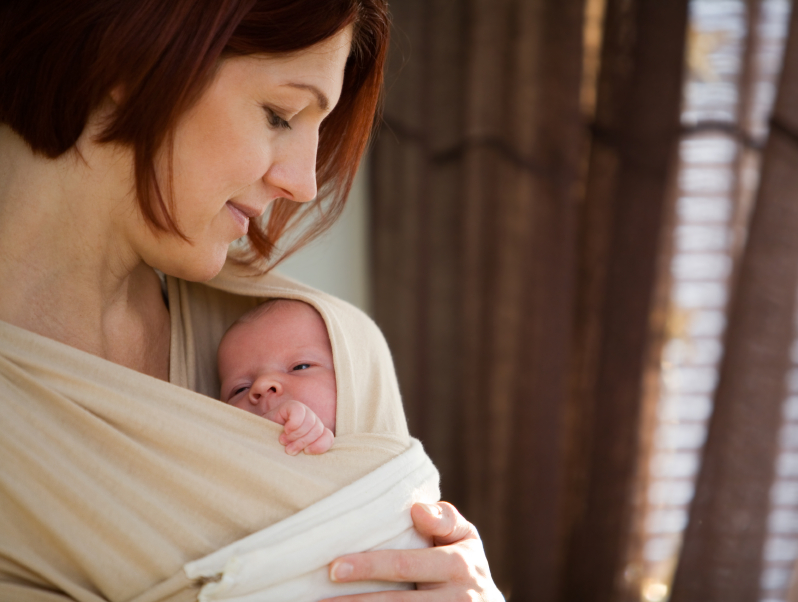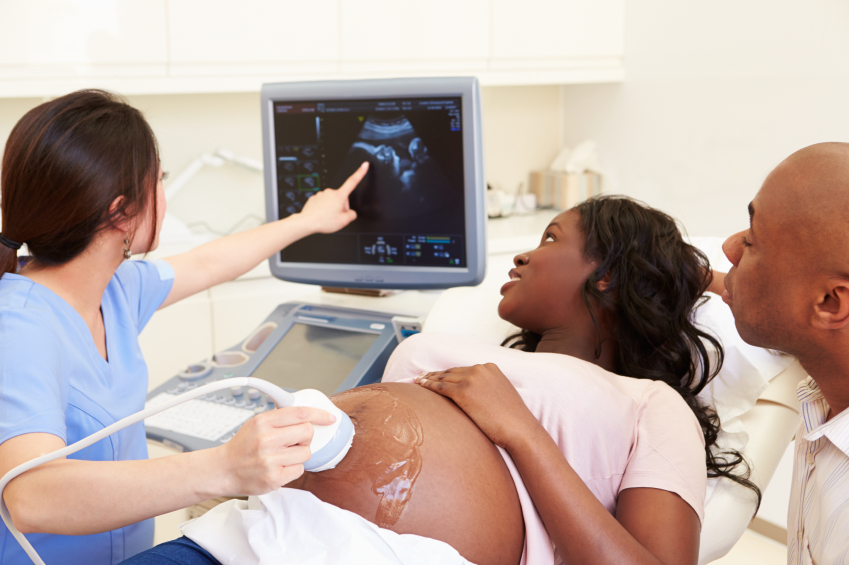Most SSRIs Free of Birth Defect Risk Early in Pregnancy, Fluoxetine and Paroxetine are Exceptions
A large study of women who took selective serotonin reuptake inhibitor (SSRI) antidepressants in the month before pregnancy and throughout the first trimester suggests that there is a smaller risk of birth defects associated with SSRI use than previously thought, though some risks were elevated in women who took paroxetine or fluoxetine.
The 2015 study, by Jennita Reefhuis and colleagues in the journal BMJ, investigated the drugs citalopram, escitalopram, fluoxetine, paroxetine, and sertraline, and examined birth defects that had previously been associated with SSRI use in smaller studies. The participants were 17,952 mothers of infants with birth defects and 9,857 mothers of infants without birth defects who had delivered between 1997 and 2009.
Sertraline was the most commonly used SSRI among the women in the study. None of the birth defects included in the study were associated with sertraline use early in pregnancy. The study found that some birth defects were 2 to 3.5 times more likely to occur in women who had taken fluoxetine or paroxetine early in their pregnancies.
Five different birth defects, while uncommon, were statistically linked to paroxetine use: anencephaly (undersized brain), heart problems including atrial septal defects and right ventricular outflow tract obstruction defects, and defects in the abdominal wall including gastroschisis and omphalocele. Two types of birth defects were associated with fluoxetine use: right ventricular outflow tract obstruction defects and craniosynostosis (premature fusion of the skull bones). Absolute incidence of these defects was also low.
RTMS and Other Treatments for Depression in Pregnancy
At the May meeting of the Society of Biological Psychiatry, researcher Deborah Kim gave a talk on the use of repeated transcranial magnetic stimulation (rTMS) for depression in women who are pregnant. In rTMS treatment, an electromagnetic coil is placed against the side of the forehead and magnetic pulses that can penetrate the scalp are converted into small electrical currents that stimulate neurons in the brain. Kim had recently completed an open study of rTMS in pregnant women, in which 70% of the women responded to rTMS. In another controlled randomized study of 30 women (also by Kim), 75% responded to active rTMS and 50% responded to a sham procedure. None of the women included had problems with the fetus or during delivery.
RTMS offers an alternative to women who are reluctant to take antidepressants during pregnancy. Kim cited data by Lee S. Cohen and colleagues in which women taking antidepressants show a 68% relapse rate if they stop taking these medications during pregnancy compared to a 26% relapse rate among those who continue taking antidepressants during pregnancy. Concerns about antidepressants’ potential effects on a fetus may have been overemphasized. Kim summarized the literature on antidepressants in pregnancy, concluding that there is a preponderance of evidence that antidepressants are safe for the mother and fetus, with few serious effects having been observed. Some researchers have been concerned about risks of persistent pulmonary hypertension or autism among offspring of women who took antidepressants during pregnancy, but studies have shown that the absolute risk of either is small. Stay tuned—on Wednesday we’ll discuss a new large and comprehensive study in which most SSRIs showed no link to birth defects, but fluoxetine and paroxetine were associated with risks of certain birth defects.
Editor’s Note: For mild depression during pregnancy, exercise and psychotherapy might be optimal, along with folate and vitamin D3. For moderate depression, omega-3 fatty acids might also be helpful, but it now appears that rTMS would be less risky than electroconvulsive therapy (ECT), which in the past has been a typical recommendation for pregnant women, but which exposes the fetus to the effects of anesthesia and seizure. In her summary Kim recommended that women with a pattern of recurrent depression continue antidepressant treatment, especially since a mother’s depression itself poses non-trivial risks to the fetus.
Maternal Childhood Adversity Associated with Low Infant Birth Weight
In a study of the effect on infant health of a mother’s experience of adversity in childhood by researcher Deborah Kim and colleagues, both adversity in childhood (such as physical abuse or the loss of a parent) and stress during pregnancy were associated with low infant birth weight and lower gestational age at birth.
Among 146 women enrolled in the study, 58.2% percent scored a 0 on the Adverse Childhood Experience Questionnaire (ACE), 24% scored a 1, and 17.8% scored a 2. Those who scored higher on the ACE also scored higher on a scale measuring perceived stress. A score of 2 or higher on the ACE was associated with lower gestational age at birth, indicating infants born prematurely. Greater stress during pregnancy was associated with lower gestational age at birth and lower infant birth weight. When potential confounding demographic factors were removed from the analyses, ACE scores of 2 or higher were still associated with lower infant birth weight, while perceived stress was no longer associated with either low birth weight or gestational age.
Childhood adversity is associated with increases in inflammation and multiple adverse medical consequences in adults. The researchers called childhood adversity a “significant predictor of poor delivery outcomes” for women.
Editor’s Note: This research shows that a mother’s health and earlier life stressors could have an adverse effect on her child.
Childhood adversity leaves behind a residue of neuroendocrine and neuroclinical alterations that can persist into adulthood. Many are mediated by epigenetic changes, consisting of small chemical marks that attach to DNA and the histones around which it is wrapped.
In addition to these neurobiological alterations mediated by epigenetic effects, there is new evidence that some epigenetic marks can be passed on to the next generation via a mother’s egg or a father’s sperm. Thus, either directly or indirectly, parents’ adverse life experiences can influence the health of their offspring.
Maternal Anxiety Affects Information Filtering in the Infant Brain, Choline Could Help
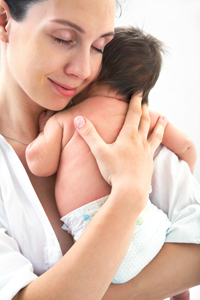 Sensory gating is a process by which the brain filters out unimportant information, to avoid flooding higher cortical centers with irrelevant stimuli. New research from Randal Ross and colleagues shows that infants of mothers with anxiety have deficits in the way their brains inhibit response to this type of irrelevant information.
Sensory gating is a process by which the brain filters out unimportant information, to avoid flooding higher cortical centers with irrelevant stimuli. New research from Randal Ross and colleagues shows that infants of mothers with anxiety have deficits in the way their brains inhibit response to this type of irrelevant information.
Mothers who were rated higher on the trait of anxiety had paradoxically lower levels of the inflammatory cytokine interleukin 6 at week 16 of their pregnancy, and their one-month-old infants showed more deficits in sensory gating. The reasons for these relationships requires further investigation.
Choline is a nutrient found in liver, muscle meats, fish, nuts, and eggs, and it may help. In a 2013 article in the American Journal of Psychiatry, Ross and colleagues showed that the supplement phosphatidylcholine (which converts to choline), taken during the second and third trimesters of pregnancy (at doses of 6300 mg/day, the equivalent of about three eggs) and followed up with 700 mg/day in the infant, led to improvements in sensory gating in the infants. These infants went on to have fewer behavioral problems as toddlers.
Ross and colleagues suggest that pre- and post-natal choline supplementation may be able to reverse the effects of maternal anxiety on infants. The researchers believe it could be helpful in the prevention of schizophrenia, as insufficient cerebral inhibition (decreased sensory gating) is a characteristic of that illness as well.
Study Finds No Substantial Risk of Infant Cardiac Problems from Antidepressant Use During Pregnancy
In the past there has been some concern that selective serotonin reuptake inhibitor (SSRI) antidepressants taken during pregnancy could increase an infant’s risk of cardiac problems. There was particular concern that the SSRI paroxetine could lead to right ventricular outflow tract obstruction, and sertraline could lead to ventricular septal defects. A 2014 study by KF Huybrechts et al. in the New England Journal of Medicine analyzed data from 949,504 women in a Medicaid system from three months before pregnancy until one month after delivery during the years 2000-2007.
Infants born to mothers who had taken antidepressants during their first trimester were compared to infants whose mothers had not taken antidepressants. In total, 6.8% or 64,389 women had used antidepressants in their first trimester.
While the rate of cardiac defects in newborns was greater among those mothers who had taken antidepressants (90.1 infants per 10,000 infants who had been exposed to antidepressants versus 72.3 infants per 10,000 infants who had not been exposed to antidepressants), this relationship diminished as confounding variables were removed. The relative risk of any cardiac defect after taking SSRIs was 1.25, but this decreased to 1.12 when restricted to only those mothers who were diagnosed with depression, and to 1.06 when the researchers controlled for things like depression severity. (All relative risk numbers were calculated with a 95% confidence interval.)
The researchers concluded that there is no substantial risk of increased cardiac defects in children born to mothers who took antidepressants during their first trimester.
Maternal Flu Infection Increases Fetus’ Risk of Bipolar Disorder with Psychotic Features
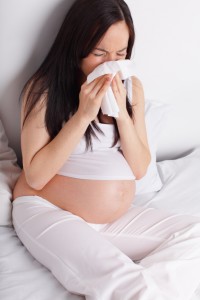 A 2014 study by Sarah E. Canetta et al. in the American Journal of Psychiatry suggests that children whose mothers had influenza during pregnancy are at higher risk for bipolar disorder with psychotic features. The same researchers had previously found that maternal influenza during pregnancy increased a child’s risk of developing schizophrenia, suggesting that there is a link between maternal influenza and psychotic symptoms in the offspring.
A 2014 study by Sarah E. Canetta et al. in the American Journal of Psychiatry suggests that children whose mothers had influenza during pregnancy are at higher risk for bipolar disorder with psychotic features. The same researchers had previously found that maternal influenza during pregnancy increased a child’s risk of developing schizophrenia, suggesting that there is a link between maternal influenza and psychotic symptoms in the offspring.
In the current study, influenza infections were identified by measuring levels of flu antibodies in blood. In a previous study, participants were considered to have influenza if they had been diagnosed clinically. Possibly due to this difference, that study showed a link between maternal flu infections and bipolar disorder in general (not just psychotic cases).
Oxytocin for Labor Induction Increases Risk of Bipolar Disorder
Over the past several decades, the practice of giving oxytocin (a hormone that facilitates bonding) to pregnant women to induce labor has become more common, but it comes with several risks to the child. These include increased risk of attention deficit hyperactivity disorder (ADHD), autism, and cognitive impairment. A new study by Freedman et al. presented at the 2014 meeting of the International Society for Bipolar Disorders suggests oxytocin may increase the risk of bipolar disorder as well.
In a sample of 19,000 people, there were 94 cases of bipolar disorder, and birth records revealed that an unexpectedly high number of these cases occurred in people whose mothers had received oxytocin to induce labor, regardless of the duration of the pregnancy. Cognition at ages 3 and 5 was impaired on one measure but not another in those children whose mothers received oxytocin. The researchers concluded that maternal oxytocin to induce labor is a significant risk factor for developing bipolar disorder later in life.
Editor’s Note: Oxytocin appears to take its place among other risk factors for bipolar disorder, which include: prematurity, maternal infection, influenza, the bacterial infection toxoplasmosis, higher insolation (a measure of how powerful radiation from the sun is in a given location), childhood adversity, inflammation (as measured by levels of C-reactive protein), heavy marijuana/THC use, and a family history positive for schizophrenia, schizoaffective disorder, or mood disorder, especially bipolar disorder and especially a bilineal history (illness in both parents).
Iodine Deficiency in Pregnancy Bad for Fetus
 A study published in the Lancet reports that even mild iodine deficiency during pregnancy can have adverse effects on IQ and cognitive development in the fetus. This occurs because of the deficiency’s effects on thyroid function.
A study published in the Lancet reports that even mild iodine deficiency during pregnancy can have adverse effects on IQ and cognitive development in the fetus. This occurs because of the deficiency’s effects on thyroid function.
Editor’s Note: Eat fish, drink milk and take a vitamin supplement with 140 to 150mcg of iodine.
Synthetic Marijuana Comes with Serious Risks, Including Risks to Fetus
Synthetic marijuana, otherwise known as spice, skank, or K2, is not only vastly more potent than the tetrahydrocannabinol (THC) in marijuana plants, but it also lacks cannabidiol (CBD), the calming, antipsychotic substance also present in the plants. This makes spice much more likely to induce major psychiatric effects.
New evidence links use of spice during pregnancy to a tragic birth defect, anencephaly, or absence of the cerebral cortex. It can also lead to the later development of attention-deficit hyperactivity disorder, learning disabilities, memory impairment, depression, and aggression.
of spice during pregnancy to a tragic birth defect, anencephaly, or absence of the cerebral cortex. It can also lead to the later development of attention-deficit hyperactivity disorder, learning disabilities, memory impairment, depression, and aggression.
Effects of THC on gestation may occur as early as two weeks after conception, meaning by the time a woman realizes she is pregnant, the fetus may have been harmed by exposure to the drug.
Other new finding associate use of spice with acute coronary syndrome and the kind of acute kidney injury that can lead to the organ shutting down.
Editor’s Note: It has now been found that synthetic marijuana, or spice, can lead to psychosis, delirium, acute coronary syndrome (heart attack) in young people, and now kidney dysfunction, in addition to causing birth defects if used by pregnant women. Not only is spice made up of more potent THC without the calming effects of CBD, but it is often laced with unknown contaminants, which are likely the cause of the heart and kidney damage.
Smoking regular marijuana is bad enough—it doubles the risk of psychosis and may precipitate the onset of schizophrenia. It may also cause long-lasting effects on cognitive function. Since many states are legalizing marijuana, it is important to know the risks. In any case the risks are much more serious with the synthetic product, and synthetic marijuana should be avoided at all costs.
Women with Bipolar Disorder at Higher Risk for Postpartum Depression
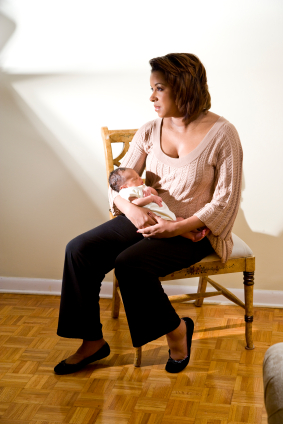 The risk of having a depressive episode during pregnancy compared to afterward have not often been studied. A 2011 review article by Viguera et al. in the American Journal of Psychiatry compared rates of affective episodes among women with bipolar I and II disorders and recurrent major depressive disorder, both during pregnancy and the postpartum period. Risks were higher for women with bipolar disorder.
The risk of having a depressive episode during pregnancy compared to afterward have not often been studied. A 2011 review article by Viguera et al. in the American Journal of Psychiatry compared rates of affective episodes among women with bipolar I and II disorders and recurrent major depressive disorder, both during pregnancy and the postpartum period. Risks were higher for women with bipolar disorder.
Among women with bipolar disorder, 23% experienced mood episodes during the pregnancy, while 52% had an episode in the months after giving birth. Among women with unipolar depression, 4.6% had a mood episode during pregnancy, while 30% did during the postpartum period, which is about double the risk seen in the general population. Depression was the most common type of morbidity the women experienced before and after giving birth.
Risk factors associated with mood episodes during pregnancy included (in descending order): younger age at illness onset, previous postpartum episodes, fewer years of illness, bipolar disorder, fewer children, and not being married. Risk factors associated with postpartum episodes included: younger age at illness onset, illness during pregnancy, bipolar disorder, fewer children, and more education.
Editor’s Note: The risk of postpartum depression increases from 15% in the general population, to 30% among women with unipolar disorder, to 50% in women with bipolar disorder. Special precautions should be taken to monitor and treat depression during and after pregnancy, in all women but particularly in those with a prior history of unipolar or bipolar disorder.

